This is a piece written by Kashi, one of our teachers, March 2018, about the benefits of using dramatic devices to enhance language learning in Atlantic Language Galway. You can also listen to her students talking about their experience learning English through drama above.
After a full morning of Halloween activities, with students sleepy from depleted sugar levels, Marie-Claire with droopy painted shapes on her cheeks that hardly still looked like a skeleton anymore, I stood in front of my afternoon Elementary English class and asked “What is an interesting holiday in your country?”
For some reason, five minutes later, Sandro was standing up behind his desk belting out a song from his home country of Bolivia. Marie-Claire announced “I will sing a French song.” Around the room we went, each student sharing a few measures of a musical piece from their homeland.
I remember thinking that I had never been in such an uninhibited and high-spirited class.
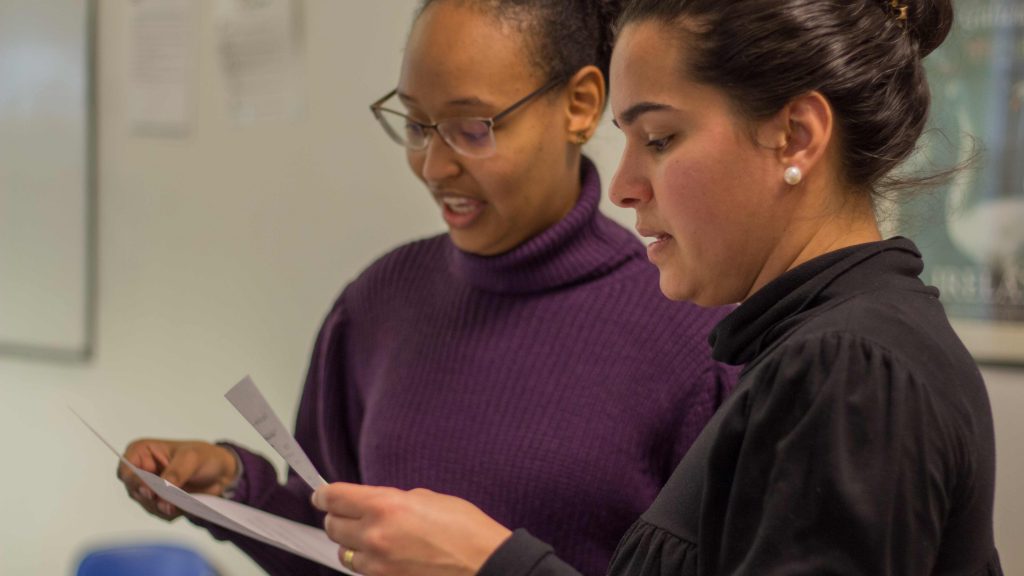
I wanted to do something with that energy!
I asked all the students to please attend our Learning English Through Drama class every other Thursday, and asked a few students who were staying for a longer period of time if they would like to be involved with theatre and dance outside of the school as well.
Luckily for me, Sandro, Camila and Maíra said yes. They would be acting in a Sci-Fi soundscape composed by Galway writer, Kevin McDevitt, for the Theatre Room’s March Performance.
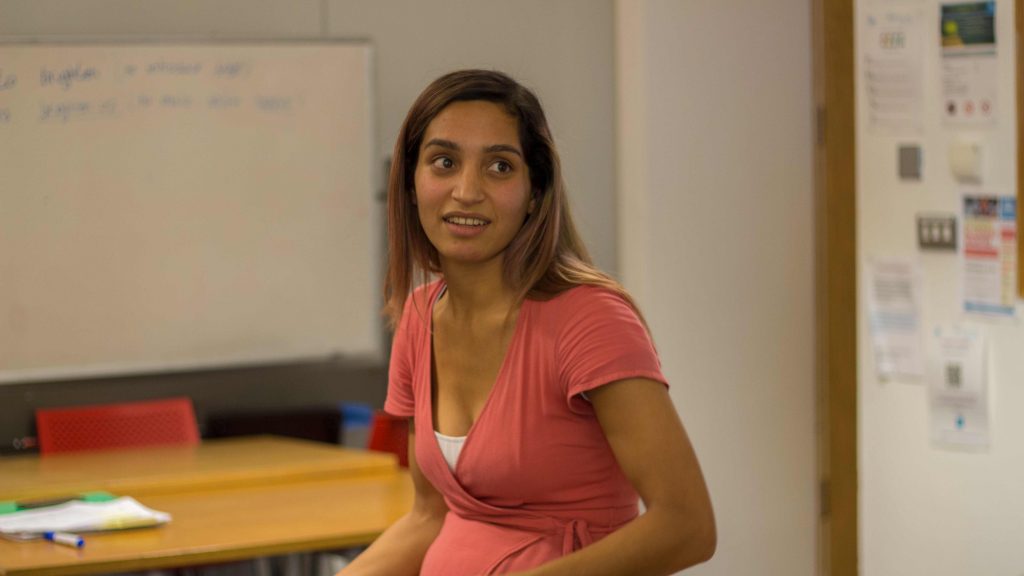
The Theatre Room
Theatre Room Galway is an amateur theatre group here in Galway city that has eight ten-minute plays performed on the last Monday of every month. It was founded by Luke Morgan in 2015, when plays were performed in his living room. Since then it has grown in numbers and takes place in a different location (pub, museum, furniture store) each month. The group is comprised of an eclectic mix of people, some theatre students, practitioners, and others who dabble in it for fun. Children have acted in plays, and though the majority of the participants are young adults, many older adults also actively participate.
After each month’s performance, a pitching session is held during which playwrights tell the audience about the plot and characters of a play they have written. If anyone, director or first-timer, finds the play intriguing, they can raise their hand and direct the play for the following month. After all the plays have directors, auditions are held throughout the venue for each of the ten-minute plays.
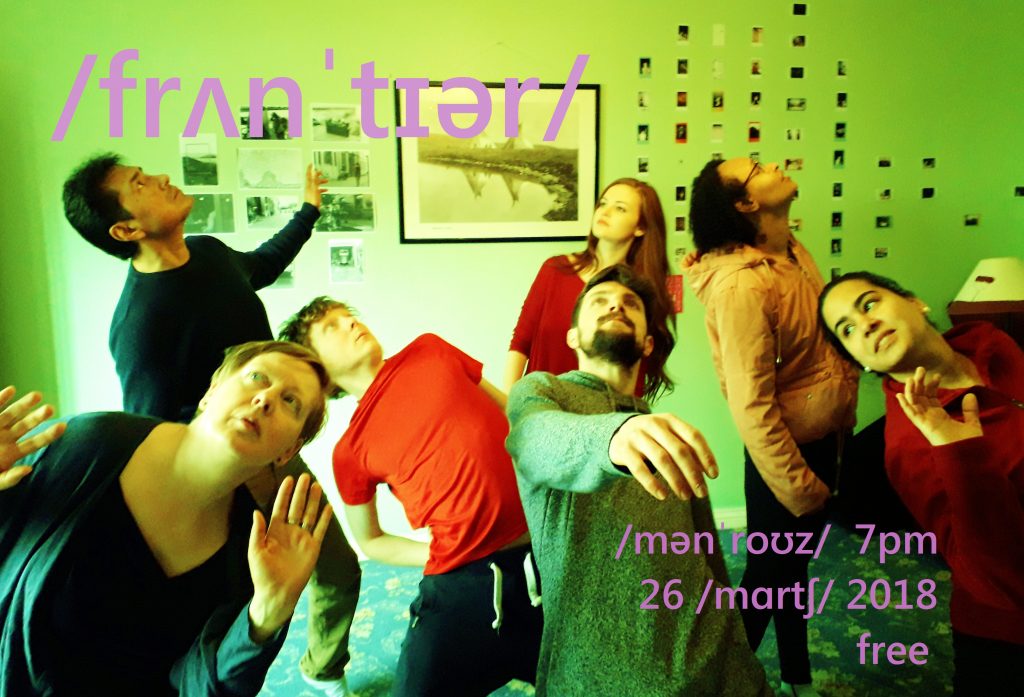
“When is the next he-hear-sal?” Rehearsal.”
Soon, Sandro, Camila and Maíra met the other cast members, theatre room veterans Cormac, Russell and Elizabeth. Several Atlantic teachers, Therese, Donal and Maggie, also joined the cast. We often joked about the fact that 2/3 of the show, “Frontier”, was from Atlantic.
After the first rehearsal in my living room, Camila asked, “When is the next he-hear-sal?”
“Rehearsal” I reminded her. “Thanks for remembering!” We all then took out our diaries and found the next date we were available.
The H and R sounds can be very difficult for Brazilian speakers who are just beginning English. I remember drilling students time and time again in Beginner English: “Restaurant, room, remember. Restaurant, room, remember.”
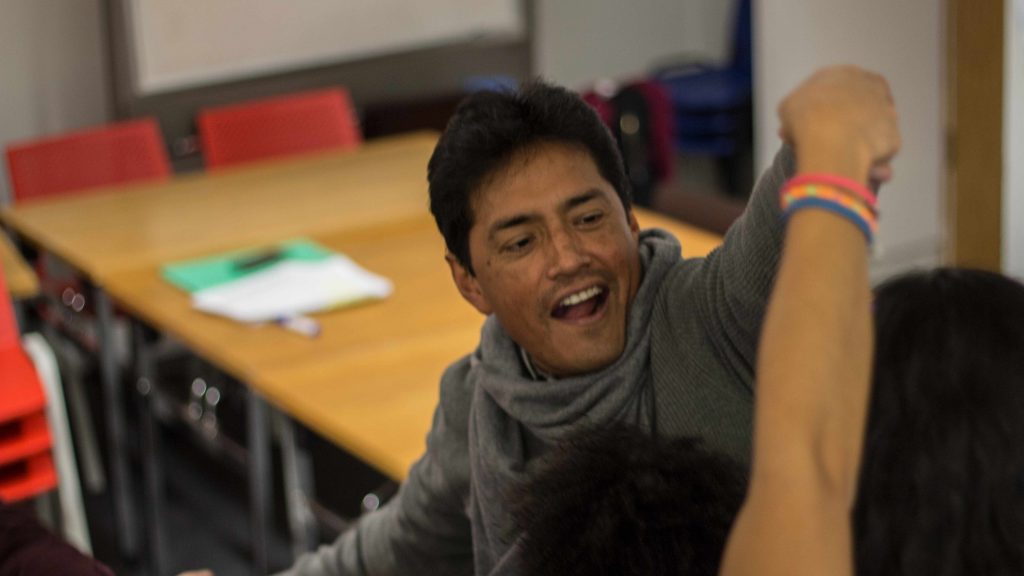
Bridging the Language Divide
I was excited about the rehearsal process and it went better than I expected. Camila and Maíra had both studied dance in Brazil, and Sandro was good at keeping time from his singing. The other cast members engaged fully with them, and I smiled watching Maíra and Elizabeth have a heart-to-heart conversation using elementary English, yet full of gestures and facial expressions. The language divide had been bridged.
Rehearsal was divided between speaking and non-speaking activities. Many of the movement warmups were based on Kamchatka’s street theatre, which revolve around being incredibly focused on the company members around you and the slight movements they make. Teacher and student had to lock eyes and communicate through their bodies, so that a tilt of the head would be mirrored in real time by one’s partner.
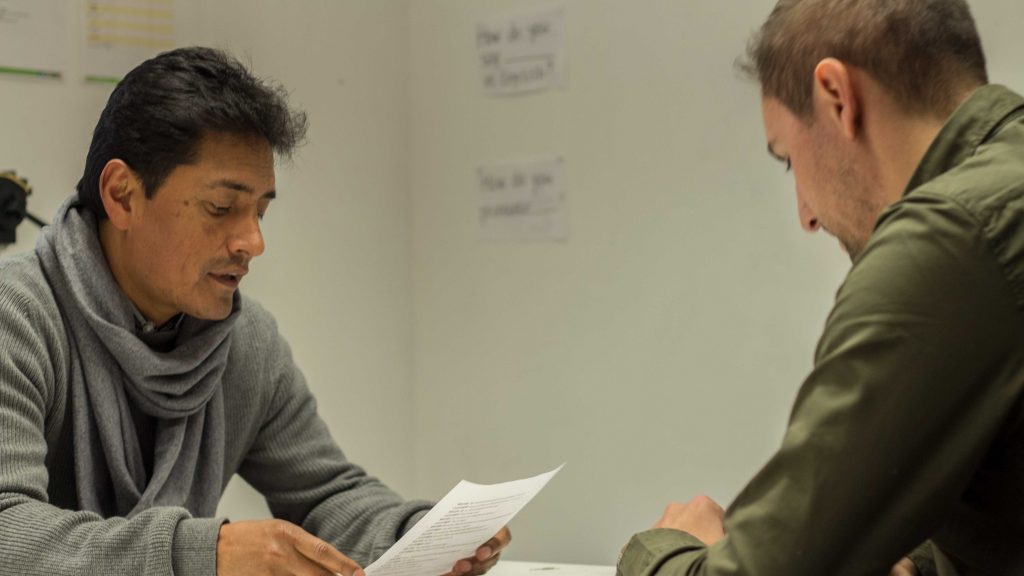
The One Word Story
A theatre warmup we often used is called One Word Story. Company members toss a ball around after saying one word to slowly build a sentence and then the story-line. This was particularly challenging for the students, but they never shirked from the challenge, and tried to contribute as best they could. As we played, I realized how great of a game it is for English students to practice verb patterns. If the player before you says “aware” you are getting practice with prepositions! The next word should most likely be “of” or “that”. “To” would be wrong!
Learning English outside of the classroom can add another angle to the learning process. To an extent, many role-plays in the class are only simulated. Once you are practicing choreography, with timed – movements and the possibility of crashing into another cast member at any moment, the need for communication becomes more urgent. The students could see the benefits of learning English through drama.
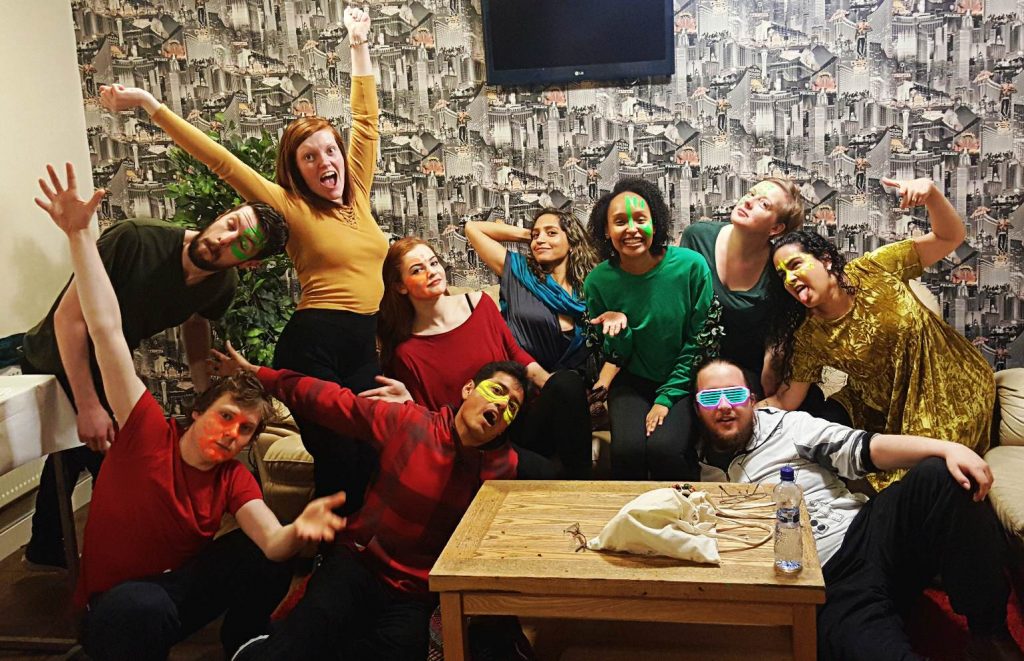
Sandro: “I had butterflies in my stomach!”
As the time came closer, we became excited and nervous. We learned the phrase, “to have butterflies” and the word “stage fright”. Students would arrive at rehearsal before me and have chats with my housemates. Teachers and students would offer each other cups of tea. And then, slowly, we were no longer divided into teachers, students, actors – we became a unit.
After four weeks, we put on our show. Many Atlantic teachers and students came out to support us and the audience was packed. The energy backstage was magnificent. Maíra asked, “Can we a picture? Take. Can we take a picture?” She smiled at her self-correction. We all gathered on the couch, the cast, the unit, and smiled at the camera.
The show went off without a hitch. Afterwards, the cast was greeted by the Atlantic Language family and hugged and complimented. Everyone’s smiles were huge. We took many pictures. As the pitching session began for next month’s shows, Camila walked up to me and gave me a hug. “Thank you, Kashi. I really loved it. I really loved the rehearsal”, and she said the r and h perfectly.
Love and light,
Kashi
Kashi has been teaching English in Ireland and Japan for the last five years. She created the ‘Learning English Through Drama’ class at Atlantic Language which has been very popular with the student body. She was also recently nominated for the Eaqual’s Teacher Awards. Watch her nomination video below.

